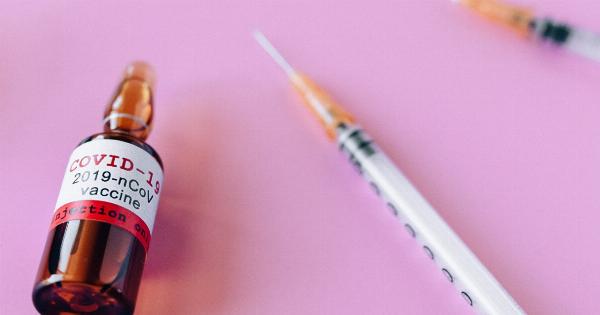Alzheimer’s disease is a devastating disorder that affects over 5.7 million individuals in the United States alone.
Currently, there is no cure for Alzheimer’s disease, and treatment options are limited to slowing down the progression of the disease. However, recent research has discovered a link between a hunger hormone and Alzheimer’s disease, providing a promising new avenue for treatment.
What is Alzheimer’s Disease?
Alzheimer’s disease is a neurodegenerative disorder that causes a decline in cognitive function and memory. The disease is characterized by the accumulation of toxic proteins in the brain that damage and kill brain cells.
As the disease progresses, individuals experience a decline in their ability to perform daily activities and can experience significant changes in behavior and personality. Currently, Alzheimer’s disease is the leading cause of dementia in older adults.
What is the Hunger Hormone, Ghrelin?
Ghrelin is a hormone that is primarily produced by cells in the stomach and plays a critical role in regulating appetite and food intake.
When ghrelin is released into the bloodstream, it triggers feelings of hunger, increases food intake, and stimulates the release of growth hormone. Researchers have also found that ghrelin has neuroprotective properties and is involved in protecting brain cells from damage and inflammation.
The Connection Between Ghrelin and Alzheimer’s Disease
Recent studies have revealed that ghrelin may play an essential role in the development and progression of Alzheimer’s disease.
Researchers have found that ghrelin can protect against the toxic effects of amyloid-beta, a protein that accumulates in the brain and is associated with Alzheimer’s disease. Ghrelin can inhibit the accumulation and growth of amyloid-beta protein, thereby reducing the risk of developing the disease. Ghrelin has also been found to improve cognitive function and memory in animal models of Alzheimer’s disease.
Promising New Treatment for Alzheimer’s Disease
The discovery of the link between ghrelin and Alzheimer’s disease has provided a promising new avenue for treatment.
Researchers are currently investigating ways to increase the production of ghrelin in individuals with Alzheimer’s disease, either through the use of drugs or through dietary modifications. Researchers are also exploring the possibility of developing drugs that mimic the effects of ghrelin in the brain, providing a potential new treatment for this devastating disorder.
Dietary Interventions
In addition to drug-based treatments, researchers are also exploring dietary interventions that may increase ghrelin production. A recent study found that a high-fat, low-carb diet increased ghrelin production in healthy individuals.
Researchers are now investigating whether a similar diet could have the same effect in individuals with Alzheimer’s disease.
Challenges and Opportunities
While the link between ghrelin and Alzheimer’s disease is significant, researchers face several challenges in developing effective treatments. One challenge is the short half-life of ghrelin, which limits its effectiveness as a drug.
Additionally, there is still much that is not known about the complex relationship between ghrelin and Alzheimer’s disease, and further research is needed to fully understand the underlying mechanisms.
Despite these challenges, the discovery of the link between ghrelin and Alzheimer’s disease provides significant opportunities for the development of new treatments.
If researchers can develop drugs that mimic the effects of ghrelin in the brain, it could provide a significant breakthrough in the treatment of Alzheimer’s disease.
Conclusion
Alzheimer’s disease is a devastating disorder that affects millions of individuals worldwide.
While there is currently no cure for Alzheimer’s disease, recent research has discovered a link between the hunger hormone ghrelin and Alzheimer’s disease, providing a promising new avenue for treatment. Researchers are currently investigating ways to increase ghrelin production in individuals with Alzheimer’s disease, either through the use of drugs or through dietary modifications.
The discovery of the link between ghrelin and Alzheimer’s disease provides significant hope for the development of new treatments for this devastating disorder.






























